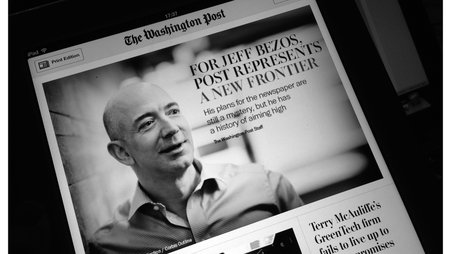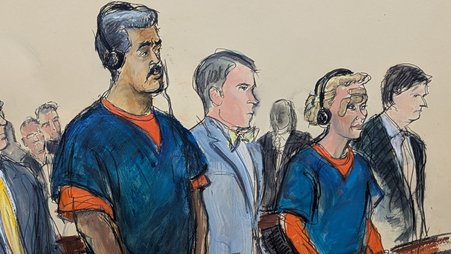Last night, the Washington Post reported on a little known leak case involving former State Department official Stephen Kim. In an alarming new extreme, the Justice Department and FBI argue there's "probable cause to believe" Fox News reporter James Rosen "has committed or is committing a violation of [the Espionage Act], as an aider and abettor and/or co-conspirator" by soliciting information from Kim for a story.
While Rosen remains unindicted, the consequences of this argument are breathtaking.
As secrecy expert Steven Aftergood wrote, the government's argument "all but eliminates the traditional distinction in classified leak investigations between sources, who are bound by a non-disclosure agreement, and reporters, who are protected by the First Amendment as long as they do not commit a crime." Aftergood continued, "What makes this alarming is that 'soliciting' and 'encouraging' the disclosure of classified information are routine, daily activities in national security reporting."
Nothing Rosen did is out of the ordinary for good reporters, as New Yorker's Ryan Lizza pointed out when referencing the alleged ways Rosen communicated with his source: "If James Rosen's 'clandestine communications plan' were illegal, every journalist in Washington would be locked up. Unreal."
While these new revalations are certainly disturbing, contrary to popular belief, they are not unprecedented. First, as Glenn Greenwald documented today (and has been documenting for years), this is the same argument the Justice Department has been using in their attempt to indict WikiLeaks and Julian Assange.
This is why it's always been so important for journalists to aggressively stand up for WikiLeaks' rights. A WikiLeaks conviction would mean that the next 'co-conspirator'—a.k.a. 'journalist with a scoop'—may very well face indictment.
But the most starking parallel to this case comes in a new book by former New York Times chief counsel James Goodale, which details how the Nixon administration once convened a secret grand jury to indict New York Times reporter Neil Sheehan and his wife, New Yorker staff writer Susan Sheehan, for obtaining and copying the Pentagon Papers from Dan Ellsberg.
Goodale recounted the near miss in the Daily Beast in 2011:
In 1971, after Nixon had lost the Pentagon Papers case in the Supreme Court, he desperately wanted to bring criminal charges against the Times. Attorney General John Mitchell first went to U.S. Attorney Whitney North Seymour Jr. in New York and asked him to indict the Times. When Seymour refused, a grand jury was convened in Boston, where the prosecutors eventually dragged virtually every journalist and anti-war academic in the Cambridge area to court using subpoenas. The Justice Department wanted to know exactly who knew of the Pentagon Papers before they were released and how they ended up at the New York Times
The scope of the investigation was extraordinarily broad, yet this episode, besides in Goodale's new book and 2011 article, has largely been lost in the history books, despite the many well-known names that were dragged into court to testify (though almost all of them refused):
A Who's Who of Boston-based reporters and anti-war activists were then forced to testify, including New York Times reporter David Halberstam, anti-war activists Noam Chomsky, Howard Zinn, and two senatorial aides to Mike Gravel and Ted Kennedy. Harvard Professor Samuel Popkin would even serve a week in jail for refusing to testify as to his sources, citing the First Amendment right to keep them confidential.
Perhaps the most amazing part of this story, recounted in much more detail in Goodale's book, is that the Times was so sure that Sheehan would be indicted for 'conspiracy to commit espionage' that New York Times publisher drew up a statement condemning the indictment that never appeared. The statement, published in full for the first time in Goodale's book, reads in part:
"The indictment of Neil Sheehan for doing his job as a reporter strikes not just at one man and one newspaper but at the whole institution of the press of the United States. In deciding to seek Mr. Sheehan's indictment, the administration in effect has challenged the right of free newspapers to search out and publish essential information without harassment and intimidation."
Those words ring true today whether we're talking about Fox News' James Rosen, WikiLeaks, or any of the other media organizations now at risk because of this draconian and out-of-control war on leaks.
As Goodale put it, "conspiracy to commit espionage" can more accurately be characterized as "conspiracy to commit journalism." You can buy Goodale's book here.
UPDATE: Fox News just released a statement defending its reporter James Rosen and it bears a striking resemblance to Times publisher Arthur Sulzberger's unpublished statement above from 43 years ago. It reads:
“We are outraged to learn today that James Rosen was named a criminal co-conspirator for simply doing his job as a reporter. In fact, it is downright chilling. We will unequivocally defend his right to operate as a member of what up until now has always been a free press.”




